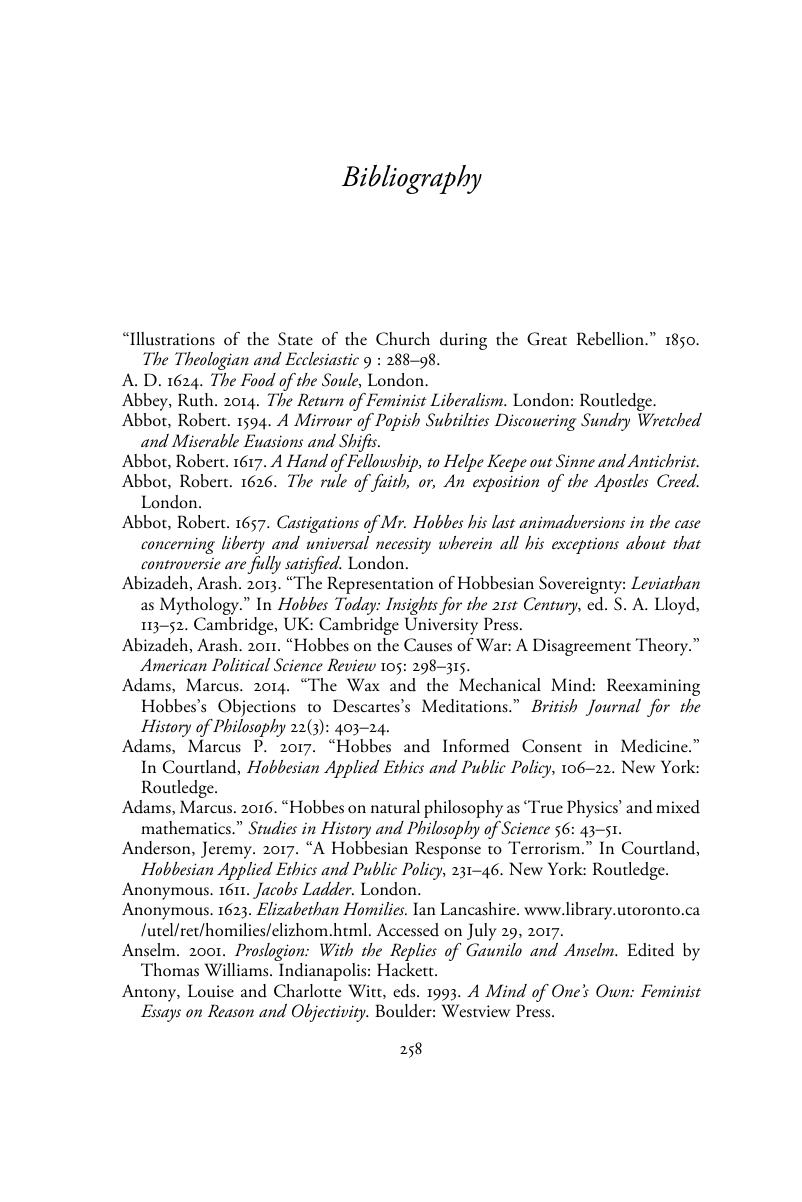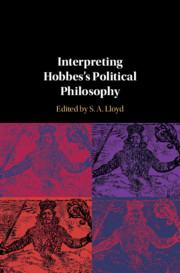Book contents
- Interpreting Hobbes’s Political Philosophy
- Interpreting Hobbes’s Political Philosophy
- Copyright page
- Contents
- Contributors
- Acknowledgments
- Introduction
- Chapter 1 Methodologies of Interpreting Hobbes: Historical and Philosophical
- Chapter 2 Hobbes’s Political-Philosophical Project: Science and Subversion
- Chapter 3 Hobbes’s Philosophical Method and the Passion of Curiosity
- Chapter 4 Hobbes, Life, and the Politics of Self-Preservation: The Role of Materialism in Hobbes’s Political Philosophy
- Chapter 5 Human Nature and Motivation: Hamilton versus Hobbes
- Chapter 6 On Benevolence and Love of Others
- Chapter 7 Interpreting Hobbes’s Moral Theory: Rightness, Goodness, Virtue, and Responsibility
- Chapter 8 Interpreting Hobbes on Civil Liberties and Rights of Resistance
- Chapter 9 Hobbes and Christian Belief
- Chapter 10 Hobbes on Persons and Authorization
- Chapter 11 The Character and Significance of the State of Nature
- Chapter 12 Hobbes’s Confounding Foole
- Chapter 13 “Not a Woman-Hater,” “No Rapist,” or Even Inventor of “the Sensitive Male”? Feminist Interpretations of Hobbes’s Political Theory and Their Relevance for Hobbes Studies
- Chapter 14 The Productivity of Misreading: Interpreting Hobbes in a Hobbesian Contractarian Perspective
- Bibliography
- Index
- References
Bibliography
Published online by Cambridge University Press: 28 January 2019
- Interpreting Hobbes’s Political Philosophy
- Interpreting Hobbes’s Political Philosophy
- Copyright page
- Contents
- Contributors
- Acknowledgments
- Introduction
- Chapter 1 Methodologies of Interpreting Hobbes: Historical and Philosophical
- Chapter 2 Hobbes’s Political-Philosophical Project: Science and Subversion
- Chapter 3 Hobbes’s Philosophical Method and the Passion of Curiosity
- Chapter 4 Hobbes, Life, and the Politics of Self-Preservation: The Role of Materialism in Hobbes’s Political Philosophy
- Chapter 5 Human Nature and Motivation: Hamilton versus Hobbes
- Chapter 6 On Benevolence and Love of Others
- Chapter 7 Interpreting Hobbes’s Moral Theory: Rightness, Goodness, Virtue, and Responsibility
- Chapter 8 Interpreting Hobbes on Civil Liberties and Rights of Resistance
- Chapter 9 Hobbes and Christian Belief
- Chapter 10 Hobbes on Persons and Authorization
- Chapter 11 The Character and Significance of the State of Nature
- Chapter 12 Hobbes’s Confounding Foole
- Chapter 13 “Not a Woman-Hater,” “No Rapist,” or Even Inventor of “the Sensitive Male”? Feminist Interpretations of Hobbes’s Political Theory and Their Relevance for Hobbes Studies
- Chapter 14 The Productivity of Misreading: Interpreting Hobbes in a Hobbesian Contractarian Perspective
- Bibliography
- Index
- References
Summary

- Type
- Chapter
- Information
- Interpreting Hobbes's Political Philosophy , pp. 258 - 278Publisher: Cambridge University PressPrint publication year: 2019



